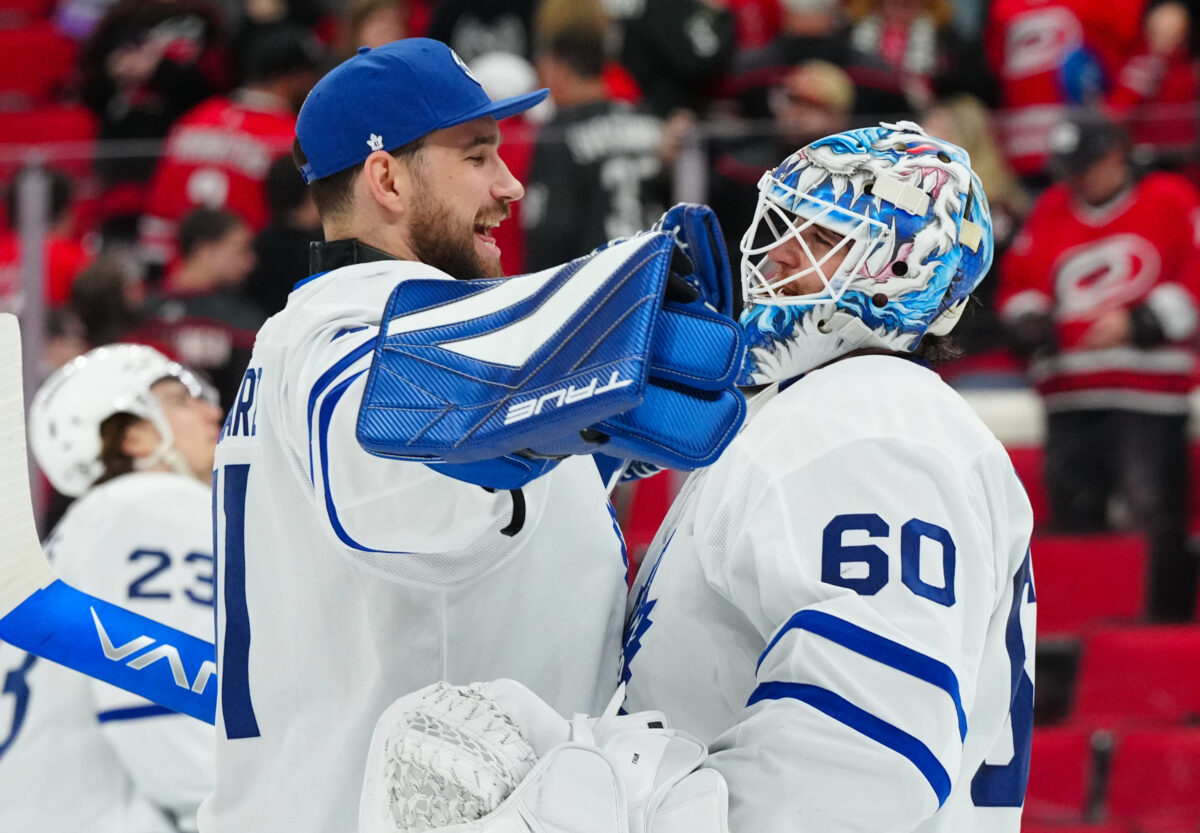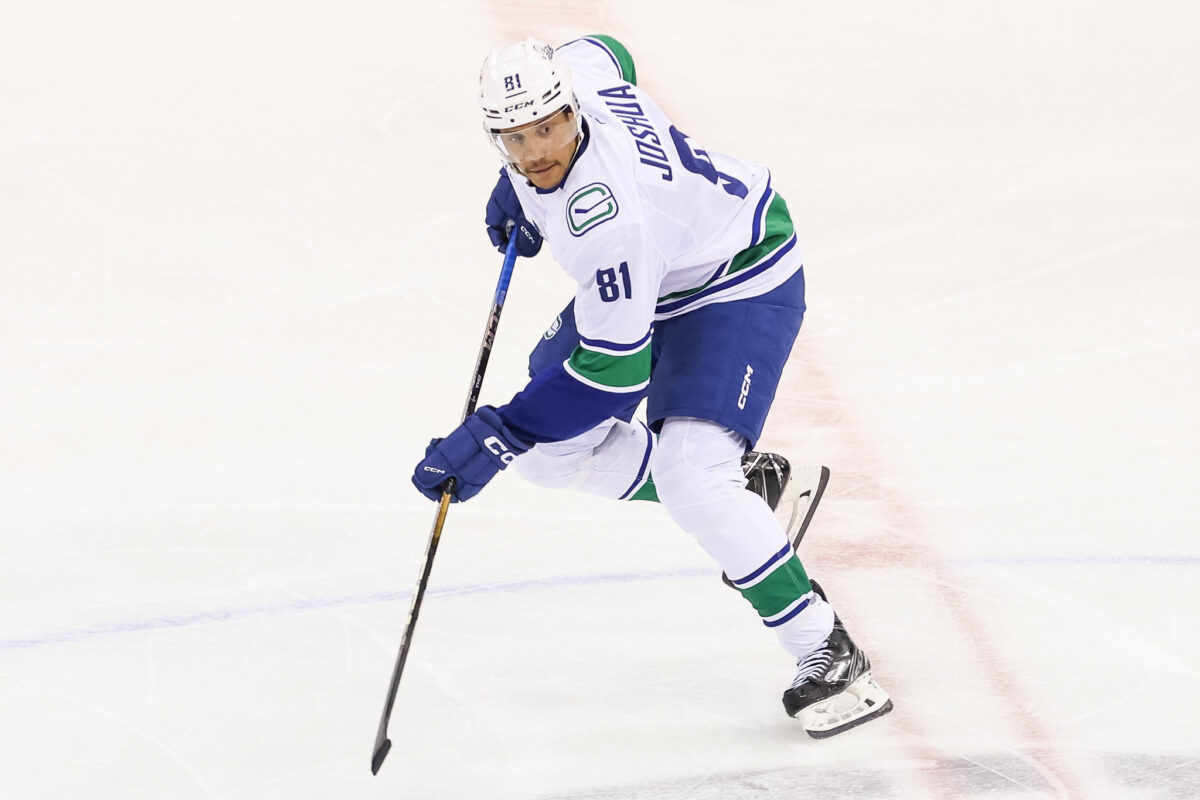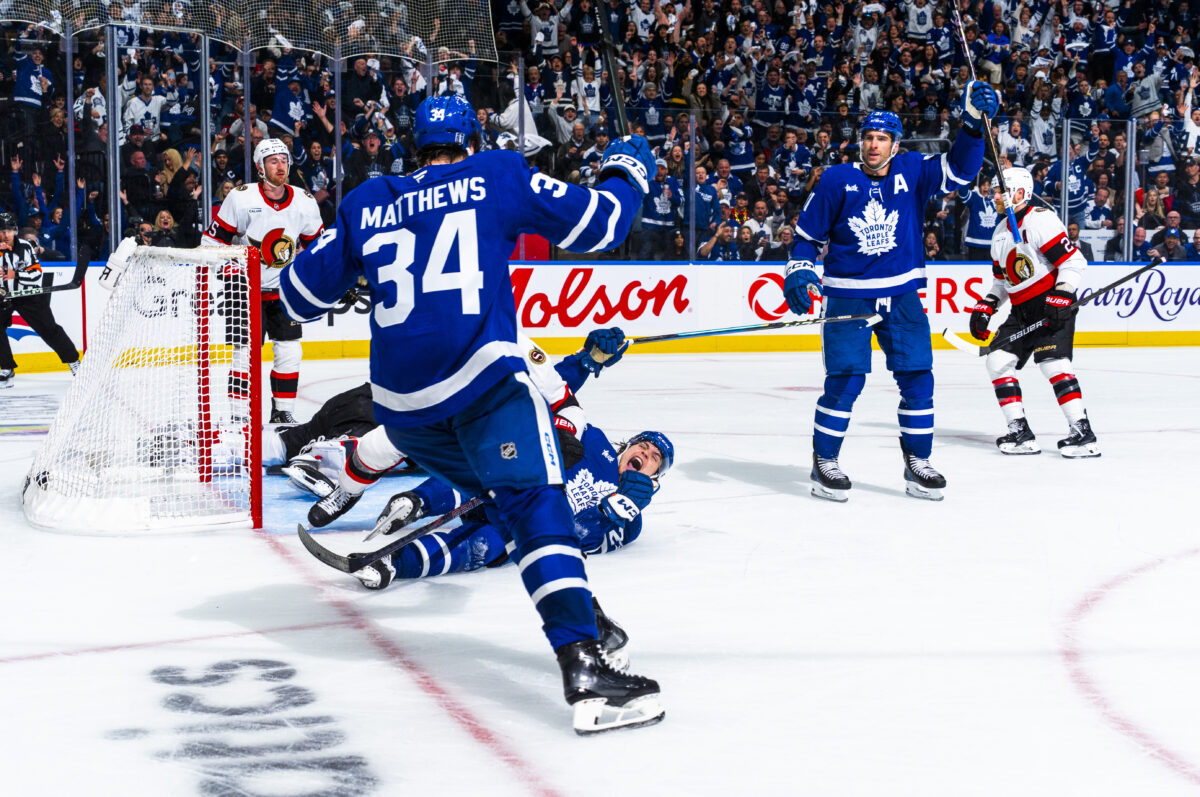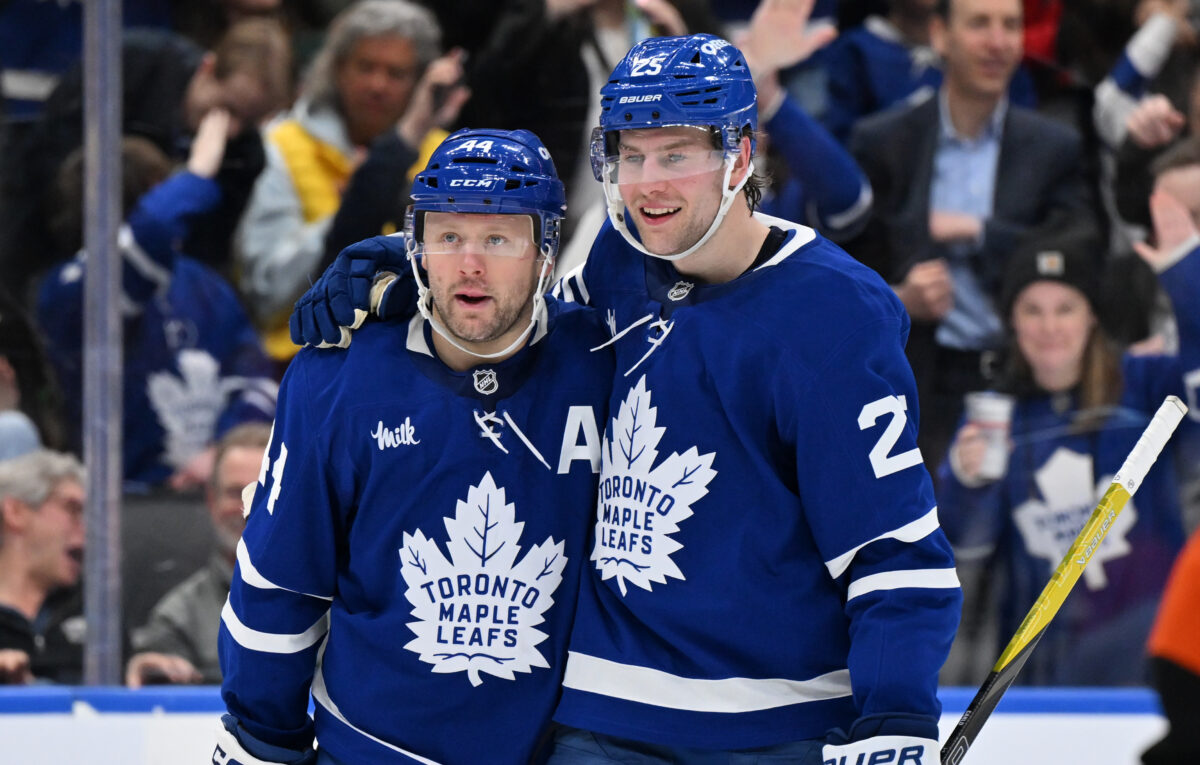The Athletic’s James Mirtle is one of the most respected writers covering the Toronto Maple Leafs. He writes intelligent, balanced pieces that aren’t homer-ish cheerleading, but also aren’t reflexively negative. We like that about his work—it forces us to think.
Related: Maple Leafs 2025-26 Early Training Camp Notebook
Recently, Mirtle published an article titled Five Reasons for Pessimism for the Toronto Maple Leafs in 2025–26. After reading it, we felt like weighing in with our two cents on each of his points. (from “Five reasons for pessimism for the Toronto Maple Leafs in 2025-26,” James Mirtle, The Athletic, 17/09/2025).
Reason 1. Maple Leafs Regression Is Highly Plausible
We agree 100%, but with a “yes, and.” The regression we expect will come in the regular season, not the postseason. It’s no secret: this team racks up wins in the regular season, but struggles when it counts. Last season, Toronto finished first in the Atlantic with 108 points. They might slip from that number, but most experts and oddsmakers still project them north of 100.
Mirtle pointed to a high shooting percentage (SH%, 11.6%) and strong goaltending from Joseph Woll and Anthony Stolarz. Both are back, and the defense in front of them remains intact. Goaltending is unpredictable, but there’s no obvious reason to expect a sharp drop-off.

Shooting percentage could dip—league-wide averages hover around 9.5%. Still, Toronto should be as good, if not better, defensively.
Mirtle also raised PDO (SH% plus save percentage), which tends to drift toward 100 over time. The Maple Leafs sat at 102 last year. While regression is possible, good teams often carry PDOs over 100 for years. Odds are about 50/50 either way.
Related: What Frederik Andersen and Anthony Stolarz Have Shown Us About the Maple Leafs’ Net
Finally, he noted Toronto’s poor possession numbers and reliance on one-goal wins. Here’s where context matters. Were those possession numbers a system issue under head coach Craig Berube? Corsi (shot attempts) isn’t everything. Many attempts aren’t real threats. We put more stock in high-danger chances, where the Maple Leafs were in the positive. And if you expect regression in the areas where Toronto excelled, shouldn’t you also expect improvement where they struggled?
Our more optimistic take: even if the Maple Leafs slip a bit in the regular season, their elite skill and steady goaltending make last season’s numbers sustainable, their talent can keep them above-average in PDO, their focus on quality chances matters more than raw possession, and their success in one-goal games shows resilience that could finally pay off in the postseason.
Reason 2. The Maple Leafs Might Not Score Enough Goals?
This is the most valid concern. Losing Mitch Marner’s 100-plus points is no small thing.

Mirtle points out that newcomers Matias Maccelli, Nicolas Roy, and Dakota Joshua combined for just 63 points last season. That’s a steep drop-off. But the season before, they totaled 130 points—30% more than Marner’s typical output. Last season was their collective low point; the season before, their peak. Odds are this season lands somewhere in between.
Mirtle also highlighted Auston Matthews’ production without Marner. The narrative says Marner boosted Matthews by about 10%, but that number feels anecdotal. Marner assisted on roughly half of Matthews’ goals over four seasons. He was there for the 60- and 69-goal years, but also during injury-shortened campaigns when Matthews scored 40 and 33. The bigger question might be Matthews’ health, not his linemate.
Related: What Mitch Marner’s Exit Really Means for Auston Matthews
Mirtle’s right that Toronto enters camp with questions: who fits best alongside Matthews now? That’s a story worth following.
Our more optimistic take: while Marner’s departure leaves a hole, Toronto’s new depth can replace his production by committee, Matthews’ scoring has always been more about his own health than his linemates, and the fresh search for a winger could spark new chemistry rather than stall it.
Reason 3. The Maple Leafs Are Getting Older
Age matters, but probably more down the road than in 2025–26. Veterans Chris Tanev (36), John Tavares (35), and Oliver Ekman-Larsson (34) are all a year older. Will their play decline? Will injuries pile up? Those are always the questions.

(Photo by Mark Blinch/NHLI via Getty Images)
Last season, all three contributed solidly. Calle Järnkrok is also in this conversation, but does he even make the team? And if he does, how much impact does he really have?
The other players in their early 30s aren’t ancient by NHL standards. Concerns about age will grow in future years, but not urgently this season.
Related: Ex-Maple Leafs Frederik “Goat” Gauthier: Where is He Now?
Our more optimistic take: while a few veterans are aging, their experience still adds value, the rest of the core is in its prime, and any real age-related decline is more of a future problem than a present one.
Reason 4. The Maple Leafs Lack Trade Assets
It’s true that, after years of going all in for a Stanley Cup run, the cupboard isn’t full. But how much does that matter?
Deadline deals get a lot of attention, especially when the eventual champion made one or two that paid off. Less talked about are the 15 other teams that swung and missed.

We’re not against adding depth or patching holes, but we’re skeptical of major overhauls at the deadline. Chemistry matters, and parachuting in players late can disrupt it. Former general manager Kyle Dubas often tinkered to a fault. We prefer this team sink or swim, largely with the group it starts with.
Our more optimistic take: while Toronto’s trade chips are limited, that could be a blessing, keeping the core intact, protecting team chemistry, and forcing the group to win on its own merit.
Reason 5. The Maple Leafs Are Still the Maple Leafs
This one’s more philosophical. The idea that “they’re still the Maple Leafs” carries baggage. But history isn’t destiny. The Washington Capitals “couldn’t win” either—until they did.
At the end of 2026, one team will raise the Stanley Cup. Thirty-one won’t. That’s the reality.
Related: 4 Maple Leafs to Keep an Eye on This Season
Our more optimistic take: history doesn’t dictate the future, and just as Washington shed its “can’t win” label, Toronto has the talent to write a new ending.
Final Thoughts About This Maple Leafs’ Team
Mirtle raised real concerns, and he’s right to. But the Maple Leafs also have answers, or at least reasons for cautious optimism. If regression comes, it may not matter as much as people think. The bigger test remains the same as ever: not October to April, but May and June.
[Note: I want to thank long-time Maple Leafs fan Stan Smith for collaborating with me on this post. Stan’s Facebook profile can be found here.]
